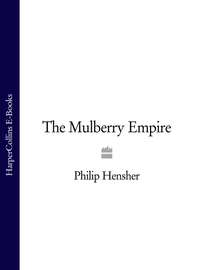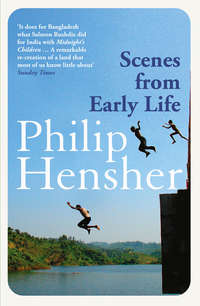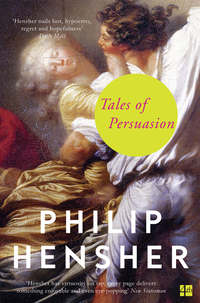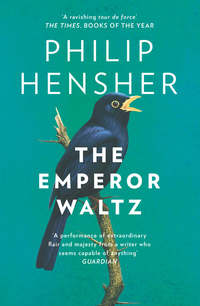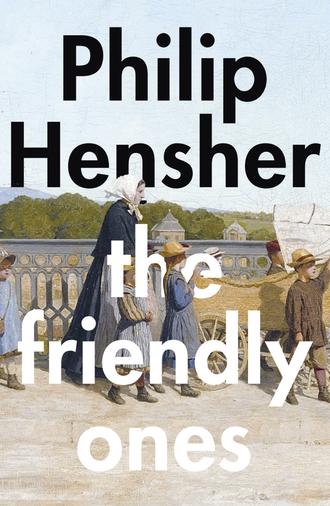
Полная версия
The Friendly Ones
‘There is a lot of corruption in Italy,’ Tinku had begun, and by now he was on to the fons et origo, as he liked to say in his University of Calcutta way, of the problem. ‘If you base everything on who you are related to, or who you know, or that you can give somebody a favour in return for them doing you a favour, then how can this become a modern country?’
‘There are many problems with Italy,’ Enrico said. ‘But there are many problems with every country.’
‘Not insuperable ones,’ Tinku said. ‘Not ones where the problem starts in the home, starts at birth. I have read a lot about Italy, and I think everyone agrees that this is the problem. You are taught that your obligation is to your mother and father, then to your brothers and sisters, then to your aunts and uncles, then to your cousins, then to people called your cousins, then to people you are told to think of as your uncles … The future is in being made to submit to merit, and to discover merit through examination. Not in having uncles.’
‘There are many cultures with this problem,’ Enrico said. He moved his hand as if to pick up the beer that Sharif had poured for him, and then, as if refusing to join in, pushed it away a little on the teak garden table.
‘Ah, you are looking around you,’ Tinku said joyously. He had proceeded by a very familiar method, Sharif recognized: he had laid a trap in the argument by describing an opposing position in terms apparently applicable to his own. If he had been talking to a Bengali, the Bengali, if he had fallen for it, would have said, ‘But you! What about you! You describe yourself when you speak!’ But an Italian would allude with indirect grace, as he fell head first, graciously, into his opponent’s trap. Sharif sat back. It was the first time that Enrico had been led in conversation to start talking about something other than Sicily. It had been done by talking about Sicily, interestingly. ‘You are looking around! You are thinking that a Bengali has no right to point the finger and say that your way of obligation is not the way! But this is the point. We come together and we talk and eat and drink and then – we go away. Tell me, have you ever obtained a job because of someone your father knew? Or your mother?’
‘No, I am certain, no, not at all,’ Enrico said.
‘But, Enrico,’ Aisha said – she had come out of the house with Fanny, was standing in the French windows, her arms folded, taking interest in the conversation, ‘tell us how you avoided military service. There is still military service in Italy, you know.’
‘Ah, that was so terrible,’ Enrico said. ‘I had to go to military camp for one week. I thought I would die, it was so terrible. One of the men there, he was a peasant, a goatherd, he could not be understood in the language he was speaking. And the first night they were lying there in the barracks and talking, talking, talking about the terrible, horrible things they did to their girlfriends as a last thing before they went to the army. I thought, I must come away from this, I cannot stay here for two years. I am an educated person and I do not belong with these people, and I telephoned my parents. But then it turned out that when they examined my chest with an X-ray I had suffered from pulmonary, is that correct, from scar tissues on my lungs from a disease in childhood, and so I could not be considered as fit for military service, and I left after six days. It was a matter of health.’
‘But, Enrico,’ Aisha said. ‘You told me your father remembered that he knew a general in the army, and that he phoned him.’
‘Well, that is not the same thing at all,’ Enrico said. The vice-chancellor spluttered with pleasure at this move in the argument, like a checkmate. Tinku and Sharif were sitting back, with the beginnings of smiles, as of a barrister about to say, ‘Your witness.’ Tinku said nothing: he was going to let Enrico carry on and bluster. ‘There are many other cultures where there are such connections, and worse. How can there be equality of opportunity,’ Enrico went on, winding himself up to the killer point, ‘when your opportunities in life are dictated from birth, by what caste you happen to be born into? There is no opportunity for your untouchables.’
Enrico now reached forward and took his beer. Sharif and Tinku exchanged a worried look. Was it a theatrical worried look? Or were they sincere? When the argument is won or lost by a single error of the opponent, how sincere is the triumph, and how much is the triumph performed? They left it to Aisha, who at least should be allowed to indicate how little her boyfriend had discovered about her, while lengthily explaining about Sicily.
‘We don’t have castes,’ Aisha said. ‘You’re thinking of Hindus. We don’t have a caste. We’re not Hindus. You’re probably thinking of India, too. We’re not from India.’
Enrico appeared confused: his eyes went from face to face, and each of them looked downwards, performing an embarrassment that none of them probably felt. They were people dedicated to moving forward, dynamically, never resting, but they paused quietly, demonstrating what stilled embarrassment might look like if you performed it when other people found themselves in trouble.
9.
The twins were the only ones still left at the fence, and the old man up the ladder had stopped talking. They had eaten twenty loquats each and, without consulting or setting each other a challenge, were going for thirty. It amazed Raja and Omith that other people ate so little, could refuse food. They watched their aunt, their sister too, eat half a piece of cake with a fork, so dainty-dainty, like a bird pecking with its little beak at crumbs, then set her fork down, push away the half-left cake on its plate; they watched this spectacle incredulously, since they had finished their cakes ten minutes before. ‘Don’t wolf,’ people would say to Omith or, especially, to Raja – he was the real gannet, as a teacher had once called him in the dinner hall. Don’t wolf: but how could you not wolf when food was so little and hunger was so enormous? ‘You really will spoil your dinner,’ their mother used to say when she came in, and there they were, making a sandwich home from school, with their favourite mix, Marmite and sandwich spread. But they never had spoiled their dinner.
They knew that Mummy would have their guts for garters if they went over to the table and made a start on what they really fancied, the samosas and pork pies and pickles. And the kitchen was full of people chopping and preparing things and bustling about: there was no way you could get into the fridge to make a sandwich to tide you over. Raja and Omith were absolutely starving. They had no idea what it might be like not to be hungry, almost all the time. They stood by the tree, and picked, and peeled, and stuffed the loquats into their mouths.
‘These are good,’ Raja said. ‘I really like these things.’ He popped another one into his mouth.
‘I really like them,’ Omith said. ‘I’m going to eat these things all summer. I’ve never …’
But he trailed off now, because Raja was making a strange noise from the throat, trying to speak without success. Omith asked what it was, but Raja made glottal, ugly sounds; and bent over violently, as if to make himself sick. On the patio, the others had seen, and were standing up. Omith’s hands fluttered; decisively, he pushed his twin. But the choking continued, and now Raja’s face was darkening, filling with blood.
‘Cough, Raja, cough,’ Omith said. Raja made flapping motions with his arms; he was trying to cough. Omith hit him on the back, gently and then harder. There was no response. The caterers had been starting to cook the meat, but now were watching with curiosity. It must look as if Raja and Omith were fighting, but now Omith remembered something from school. He got behind Raja – he cursed himself for not remembering, not paying attention – and his hands joined together in a double fist, pulled heavily into the pit of Raja’s stomach. Mummy was running towards them, and, strangely, the old man from next door, climbing nimbly over the fence. Omith was punching into the stomach. So this is how your brother dies, he heard his mind horribly saying, and Mummy screaming, and knowing that nothing was happening, that he was just punching into the stomach and Raja was making an awful choked skriking noise, a noise of a throat in mud, and twitching and flailing, and then quite suddenly Raja went limp, his head falling to one side.
The old man from next door was quite calm. ‘Put him down,’ he said. ‘There, on his back. Go and bring me a sharp knife – there must be one at the barbecue. Wipe it. Go on. And a pen,’ he said, turning to Aisha as her brother ran. ‘Just a biro would do. Take everything out, just the tube. Quick – good.’ Omith was back already, with a steak knife. The old man took it from him, running his finger along the blade. He knelt down, muttering, ‘I’m a doctor,’ in some kind of response to all this screaming, and reached out his hand for Aisha’s pen. She had found one in her bag, a new one, and tried with shaking hand to take off the lid, the stopper, to pull out the ink tube. The old man’s hand was patient, but steady, demanding; it was in that horizontal calm waiting that his professional standing was apparent. Aisha finally succeeded, and handed it to him. Before they could quite understand what he was doing, he had placed the tube in his shirt pocket, and with his left hand felt urgently at Raja’s throat. His hand stopped; held; and with a single gesture the other hand cut between his second and third fingers, into Raja’s throat. Raja made no movement as his flesh was sliced. The biro was taken from the upper pocket, and the old man – the doctor – plunged it firmly into the incision. There was a sound of whistling; you could feel the air re-inflating Raja. But Aisha was already leading her mother away to a little crowd of comforters. The flurry of action was over. The old man reached out, and pulled himself up with the aid of Omith.
‘He should be all right now,’ he said, to nobody in particular. ‘Has someone called for an ambulance?’ (Sharif was doing that, inside the house.) ‘The hospital will sort him out. I’ve done it once or twice before. Dramatic, but it leaves no ill effect.’
‘That was –’ Omith said, coming down to his brother. Raja was going to be all right, but he would come round with blood trickling down his throat and a biro stuck in his neck. He would want Omith to stay with him.
The others were crowding round, appalled. ‘It’s best if you sit down,’ Tinku said and, placing his arms around Dolly, who was giving small piping noises of despair and helplessness, tried to push her in the direction of the patio. ‘Don’t – there’s nothing you can do here, Dolly. Come along.’
The doctor was feeling Raja’s pulse, perhaps for the lack of something better to do, perhaps to go on seeming professional. ‘It looks frightening, I know,’ he said. ‘You’ve been taught the manoeuvre. It usually works, but if it doesn’t – well, you saw what to do. You have to decide you’re going to do that very quickly. I suppose it was one of the stones from the loquat tree he swallowed.’
‘It must have been that,’ Omith said.
‘Well, now you’ll be more careful eating them,’ the doctor said. ‘If it ever produces fruit again. The Tillotsons put it in. They loved it. I would say you’ve been lucky. I’m retired as a doctor – I was a GP. But you never forget these things. I once removed an appendix. That was the limit of my surgical experience. This was child’s play. I retired five years ago now. There’s a young fellow in my place ‒ you might know him. Dr Khan.’
‘Where is that?’ Omith said, with a sense of feeling dizzy. Raja had ordered him about all their lives, and that might have gone in a minute. His brother had nearly died and was still lying there faint and exhausted, his hand warm in his brother’s; this old man was talking to him about himself. Tinku and Bina were standing by, looking down as if awaiting instructions. It was for Omith to listen to the doctor talking.
‘Where is it?’ the old man said. ‘The surgery? On the Earlsfield road, just where it curves towards the top. We made a successful surgery out of it. I hope Dr Khan’s doing us proud. If you happen to see him, tell him Dr Spinster sends his best regards. My wife’s not at home. She’s in hospital herself.’
But now Sharif was coming out of the house, and Tinku was going over to find out what news of the ambulance. Their mother was being comforted – restrained almost – by Aunty Bina. It was for him to stay here, with the doctor, and his brother, and in a moment the ambulance would come.
‘There are grandchildren now, of course,’ the doctor was saying. Had he lost interest in Raja? He let the wrist flop down. ‘Quite normal. My daughter has four, and my elder son has one. The younger two children don’t have any as yet. They’re coming up today or tomorrow. To see their mother, of course. It is serious but not final, not yet. Have you ever thought of becoming a doctor, young man?’
It was as if the old man had not quite known who he was talking to, and with that last sentence had taken a look and realized who Omith was; he had spoken in a hearty, encouraging, routine way, as doctors must to any fifteen-year-old who shows the slightest interest. But Omith had shown no interest. He wanted to design computer programs with Raja. The old man had just decided that he ought to speak to someone like Omith like that. The party was dissolving; people were tactfully leaving without demanding anyone say goodbye to them. And now there was a light flashing somewhere nearby, on the other side of the castellated house, reflecting from some high leaf, and two paramedics in uniform were coming around the side of the house with their box of tricks. This was the proper stuff, not a biro and a steak knife now lying on the ground with his brother’s blood on it. In confusion, too, coming round the ambulance, bearing dishes wrapped in clingfilm, were the Manchester lot, concern written on the faces of Rekha and Rashed, their son Bobby and, with impeccably poor timing, like the worst storyteller in the world, his wife Aditi carrying the secret she had been waiting to divulge, her pregnant belly. Omith felt that this conjunction of stories, however ill-timed, was what they had been waiting for, and as the old man started to explain what had been done, he stood up, too, eyeing the ambulance men as they set to work, sure that in a moment they would turn and tell Dr Spinster off firmly for what he had done, for what he had failed to do. The party was over. The festoons hung, unenjoyed, unfulfilled, from the trees above the uneaten food. He had quite looked forward to some aspects of it. His mother was rushing forward to embrace Aditi, to tell her everything.
10.
For some reason, Enrico was still in the seat where he had been arguing, and in a sulky, ignoring stance. Had he not seen? Did he think this sort of thing was normal? Aisha looked out from the sitting room where most of the rest of them were sitting. The party was over; Mummy and Daddy and Omith had gone with Raja in the ambulance. Aisha had offered to stay, to see people off, to give them a cup of tea before they had to go. It was a great shame, but there it was. Now the remnants of the party were in no great hurry to go; they were, rather, in a mood to cap each other’s tales of lives put at risk and saved by timely intervention. They were enjoying each other a great deal. Mummy and Daddy would be at the hospital all evening, she supposed, but they would be coming home at some point. If all the aunts and cousins were still here when they came back, it would really be too much. And then there was the question of what to do about Enrico.
He sat outside, drinking what must be a third bottle of beer, his back in its tattered brown sweater eloquent with resentment and complaint. She wished he would go home. But he would not: he was staying with them. His back spoke to her. It explained that Enrico felt they had failed in their duties towards him by leaving him outside, by showing inadequate interest in him and, worst of all, by correcting him on a matter of fact. All that would have been far more irritating to Enrico had Raja actually died. She looked at him and really felt that she could ask him to take a train back to Cambridge this evening.
‘What’s up?’ Fanny said, coming up and slipping her hand into the crook of Aisha’s arm. ‘Poor old Aditi. No one’s paying her the slightest attention after all. She was planning to be the star, too.’
‘You kept her secret so well,’ Aisha said.
‘To be honest,’ Fanny said, ‘I half forgot. She’s such a bore. Now what?’
‘Oh, someone ought to go and pay the caterers,’ Aisha said. ‘It seems such a waste.’
‘We can pack it up and parcel it out,’ Fanny said. ‘And take it home and eat it for the next week or two. Lucky that old man being a doctor.’
‘At the end he said, “Well, now I suppose I should climb back over the fence,” and we all said nothing. This is after Raja had been taken off and there was nothing else for him to do. But then I realized what he meant, and said, “Oh, no, you must come through the house. There’s no need for you to be climbing fences.” And that turned out to be what he meant, could he come through the house.’
‘They just want someone to talk to, people that age.’
‘He’s got a wife and four children, the man next door.’
‘Well, I don’t know, then.’
‘They are just so weird. I don’t understand them.’
‘Who?’
‘People. Where’s baby Camellia?’
‘God knows. Not my business.’
They looked out together at the garden, at Enrico sitting with his back to them, at the caterers now packing up and parcelling out. Next door, there was the noise of the French windows being closed, and further away, the sound of a mother calling to her answering, querulous teenage son. The afternoon had started beautifully, but now was darkening. There were a few spots marking the flagstones. The cousins stood and watched with some enjoyment as it began to rain in earnest.
CHAPTER TWO
1.
There was another man next door. Aisha remembered that the old man had said he had grown-up children, and this one could be one of those. She was going to stay on. She had explained to Enrico that she would be hanging around until Wednesday at least, to make sure of Raja, and he might as well get a train back to Cambridge on Sunday night. Enrico had looked doubtful, in his party shirt underneath his tatty old sweater, but Aisha had assured him that the trains were good until quite late on Sunday night. There was a train to Birmingham every hour, at five minutes past, then a short walk over the platform and a fast train to Cambridge, all night until at least eleven. In fact she had no idea. By the time he was at the station and on a train to Birmingham, it would be too late for him to do anything about it.
It wasn’t until she heard the impatient rattle and tick of a black cab outside in the street that she realized how keen she was to get rid of Enrico. The poor man, she found herself thinking. He was sitting there with his coat on, his small bag by his side on the floor, and it only takes the sound of a taxi for them to leap up and say, with relief and thanks, ‘That’ll be for you.’ It was herself she was shaking her head over, leaping up and smiling brightly. Fanny smiled, gorgeously, slowly, pulling herself up without much enthusiasm, and the two of them took Enrico to the door.
‘I’ve very much enjoyed myself,’ Enrico said, scowling. ‘Please thank your mother and father for me.’ He made a sort of gesture towards Aisha, but she had a sandwich in her left hand, a piece of pork pie in the other. Although the rain had retreated to the spattering stage, Aisha was not going to venture out from under the porch, and the handshake he had in mind turned into a sort of shrug, performed by two people leaning into each other.
‘I’m so sorry they couldn’t be here to say goodbye themselves,’ Aisha said formally. ‘And I’ll see you in Cambridge in a few days’ time.’
‘I don’t think that’s Enrico’s taxi,’ Fanny said, drawling. ‘Someone’s in it.’
The cab had pulled up outside their gate, but Fanny was right: there was a man in the back of it. His shape was hunched over, counting money or gathering bags.
‘Why don’t you take it anyway?’ Aisha said. She took a bite of the pork pie. ‘One taxi’s much like another.’
The man got out. He had two suitcases with him, old brown leather suitcases. He put them on the pavement and stretched, a wide, relieved sort of stretch. He looked up at the heavy sky, feeling a drop of rain. There was even some enjoyment in his face at being rained on. At first Aisha thought he was going to walk up their drive, but that was impossible. He was coming home, not visiting a stranger. That was in the way his arms fell after the stretch. There had been other homecomings. She saw the stranger’s relieved face, and it was with a sense of something being talked over that she heard the Italian’s voice beginning to complain. That face, bemused, round, the eyes big and startled and blue: it was like a long-ago familiar piece of music that you caught in a public place and paused, listening intently to its cadence. She could not go on chewing. The stranger’s expression, warm and humorous, regretful, even flirtatious, went over the three of them, and he turned away. The taxi had got the house number wrong – they were hard to read from the road – and this man with the two suitcases walked twenty paces, and into the house next door. It was a strong, assessing, somehow disappointed face moving away quickly from what it had considered.
‘I’ll go now,’ Enrico was saying.
‘See you later,’ Aisha said. She smiled brightly, and surely she smiled in his direction. But there was something strange in the way she did it: he looked at her first curiously, then, as if with understanding, with the beginnings of fury. He walked down the wet gravel drive, hunched as if it were still bucketing down. He did not look back.
2.
Leo had forgotten what the trains on a Sunday were like, and had managed to get on the wrong one. He had found himself at Doncaster and having to change. There had been nothing to eat on either train, and he had even thought about getting a sandwich when he arrived at Sheffield. The girl who had sat opposite, with the Louise Brooks bob, the heavy boots and the delicate ankles, she had agreed – it was a scandal, she was starving. She’d got off at Chesterfield.
Under the porch of the house next door, three Asian people stood, saying goodbye to one of them – no, two and a white man. It had been raining hard. He wondered what had happened to the Tillotsons. His father, when he opened the door, looked surprisingly chipper, and was even rubbing his hands together.
‘Good, good,’ he said. ‘Parked your car on the road, have you?’
‘No,’ Leo said, coming inside by pushing past his father. ‘It wouldn’t start this morning. Some mechanical thing. I took the train in the end.’
‘You could have got someone to come out,’ his father said. ‘That’s what they’re there for.’
‘I’m just doing what Mrs Thatcher was telling us to do the other day,’ he said. ‘Save the planet. Go by train! We’re all going to die.’
‘I don’t suppose taking the train from London to Sheffield instead of driving is going to put that off very much,’ his father said.
‘You seem cheerful,’ Leo said.
‘Do I?’ his father said. ‘Come through. That would be most extraordinary. I suppose I did something rather clever, just an hour ago.’
‘Oh, yes,’ Leo said, discouragingly. They said that when you returned to your childhood home it seemed smaller. The house was the same size, and in any case, he’d last been here at Christmas. His father had succeeded in shrinking, however. He was determined that he was not going to let him begin by explaining how clever he had been. There had been enough of that. His father should look outwards, and think of other people, and not sing his own praises for once.
‘You know the people next door moved out,’ he said. ‘The people who bought it, a nice family, Asian, they were having a party for all their relations. Visiting, visiting, not living there. And one of them was eating something too fast and got it stuck in his throat. And luckily I could do something about it. He’ll be fine. It all comes back to you when it needs to. I dare say they’ll always be grateful for me leaping over the fence like that, just at the right time.’



